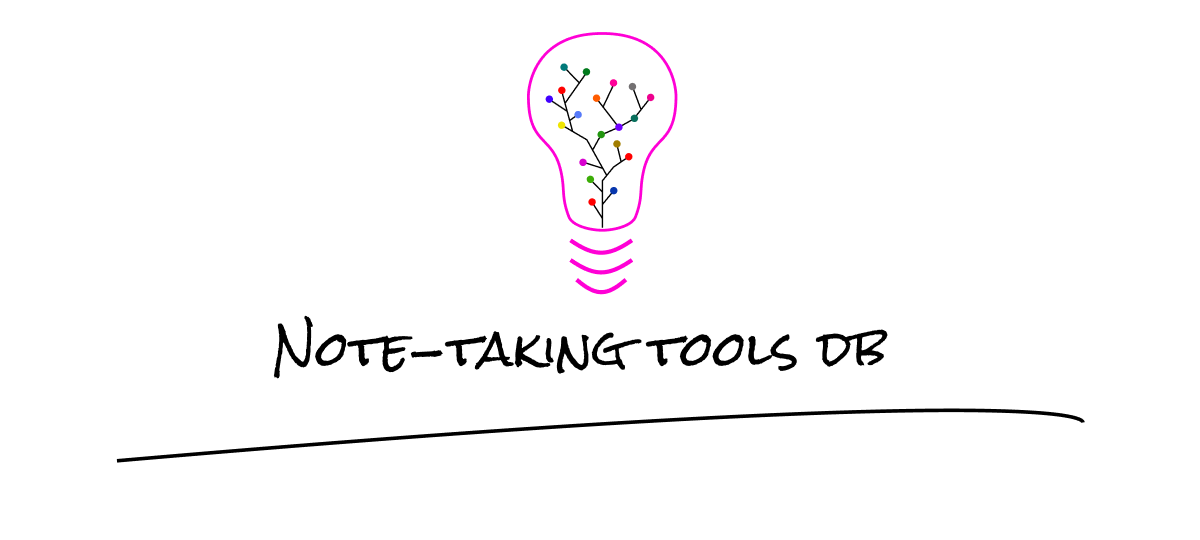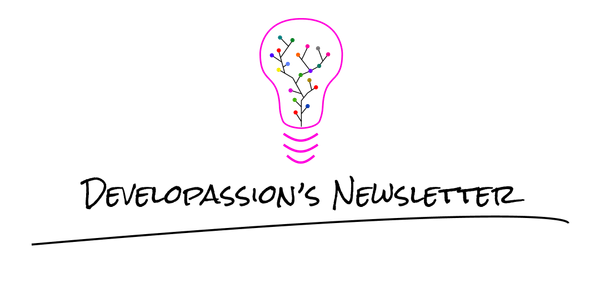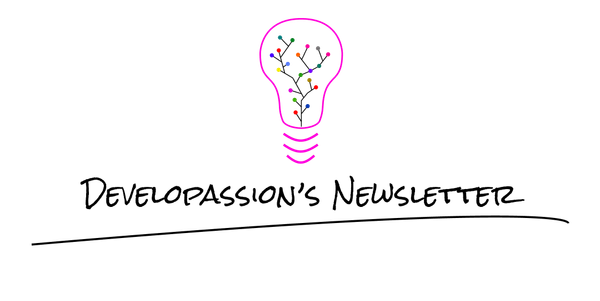How I use daily notes
An overview of how I use daily notes and how I extract knowledge from those.

A while ago, I shared my daily note template with you. In this article, I want to explain how I use my daily notes in practice.
Using Daily Notes as a Knowledge Inbox
I've already published two articles about journaling, so I won't dive too deeply here. The key point is that journaling is at the very center of my Personal Knowledge Management system. While I use and heavily recommend (a down to earth version of) the Zettelkasten method, I actually don't create many fleeting notes. Instead, I capture whatever I find useful/inspiring as part of my daily notes.

As a result, my daily notes act as the inbox of my knowledge base. Anything I come across or think about that I decide to capture ends up in my daily notes. The benefit of this approach is that I can remain focused on whatever I'm doing. I don't waste time creating notes and links throughout the day. I don't have time for that. Instead, I defer the "knowledge extraction" to my weekly reviews.
How to Extract Knowledge During Weekly Reviews
What I call "knowledge extraction" is the process of creating and linking notes, based on the information stored in my daily notes. Once done, the processed daily notes only contain links to the newly created notes. I generally do this once a week, during my weekly review, extracting knowledge from one daily note at a time.
Once knowledge extraction is done, daily notes maintain the link between the moment when some idea entered my knowledge base and the idea itself. Thus they act as an ordered reference of what I added to my knowledge base. If I look back at a daily note from last year, I can easily recover the mental context I was in at the time and the things I learned back then.


Knowledge Extraction Example
I'll take a concrete example to illustrate this process:
Above is an extract from my current daily note. At the end of the week, when I review this note, I'll extract each element into separate notes, either improving existing ones, or creating brand-new ones. I'll also link to other relevant notes and tag the newly-created ones.
Usually, I start by extracting quotes. I often capture the ones that inspire me, and those are really easy to extract. In my knowledge base, I like linking each quote with its author. I create one note per quote, and one note per person. Let's process the following one:
The best thing you can do to get ahead in life is to realize you’re not special and to learn how to deal with all the uncertainty life throws at you. — [[Daniel Vassalo]]
As you can see, in this case I already have a link to the note of Daniel Vassalo in my knowledge base, meaning that I already have a note for that person. One less step for me. If I didn't have one, I would start by creating one.
I go ahead and create a note with the entire quote as the name (it doesn't always work, but often does). Once created, I hit ALT+E to invoke the templater plugin and insert the quote template that is part of the Obsidian Starter Kit. That template takes care of adding the relevant metadata, to which I add a few tags:
Once that note is created, I replace the quote in my daily note by a link pointing to it. I repeat that process for each of the points in my daily note.
Let's look at a more complex example:
Here, I have captured some ideas about why solopreneurs are missing out when they're not taking/making notes and using PKM. These are ideas that I had in mind and want to further explore. Based on these, I actually want to branch out, prepare related content, and maybe initiate new projects. For now, I just want to avoid forgetting.
I start by creating a note called "Why solopreneurs are missing out when not taking or making notes and using PKM". Since a few more ideas pop up in my head, I capture those along with the previous ones. This time, I use the permanent note template of the Obsidian Starter Kit, as these are my own ideas:
As you can see, I have expanded the initial bullet points into a fully-fledged (but still atomic!) note. This one summarizes my trail of thought of the moment on this topic. The tags will help me resurface this note in different contexts. I've linked the note to a few other ones that discuss related topics (e.g., the sunk cost fallacy), which strengthens my knowledge base, and I've also added a few tasks. It's not something I do regularly, but in this case, since this might turn into a project at some point, I found it useful to keep track of the next steps I have in mind.

The last step is again to replace the initial bullet points in my daily note with a single link: [[Why solopreneurs are missing out when not taking or making notes and using PKM]].
Ultimately, after applying the same process to all the points in my daily note, it would end up like this:
At this point, the bulk of the knowledge extraction process is done, and my knowledge base contains a number of new connected ideas.
Knowledge Extraction Benefits
Taking time to extract knowledge from my daily notes in one go instead of little by little throughout the week helps me be more consistent (it's the century-old factory analogy). Also, I've noticed that within a short time span (< 1 week), I tend to capture many related ideas. Processing those at the same time makes it easier for me to connect them together.
Another benefit of this process is that my daily notes then turn into "time anchors" for the knowledge I have extracted. I know when a given idea entered my knowledge base, and I can recover the mental context I was in (what I was working on, what concerned me, what challenges I was facing at the time, etc). This means I can look really look back.

Yet another is the cross-pollination of ideas. As I'm processing daily notes in batch, I create a mental context with many ideas floating in my mind. Those ideas help me enrich the notes by identifying similarities, analogies, and discrepancies between seemingly unrelated ideas. It also works across fields. One minute I could be rambling about entrepreneurship, and the next I could be thinking deeply about the future of the tech industry, parenting, or the intersection between those.
Last but not least, I get to further explore the ideas I've found interesting during the week, giving me the opportunity to either throw them away or improve them.
Conclusion
In this article, I've explained how I process my daily notes, and the process I use to turn those into time anchors. I've described my knowledge extraction approach, as well as the benefits it brings me.
That's it for today! ✨
About Sébastien
I am Sébastien Dubois. You can follow me on X 🐦 and on BlueSky 🦋.
I am an author, founder, and coach. I write books and articles about Knowledge Work, Personal Knowledge Management, Note-taking, Lifelong Learning, Personal Organization, and Zen Productivity. I also craft lovely digital products . You can learn more about my projects here.
If you want to follow my work, then become a member.
Ready to get to the next level?
To embark on your Knowledge Management journey, consider investing in resources that will equip you with the tools and strategies you need. Check out the Obsidian Starter Kit and the accompanying video course. It will give you a rock-solid starting point for your note-taking and Knowledge Management efforts.
If you want to take a more holistic approach, then the Knowledge Worker Kit is for you. It covers PKM, but expands into productivity, personal organization, project/task management, and more:
If you are in a hurry, then do not hesitate to book a coaching session with me:






